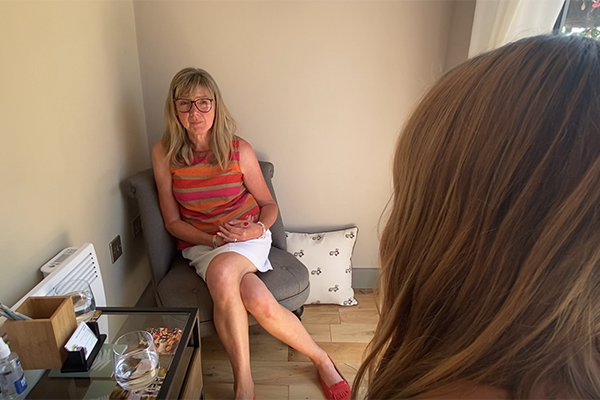When someone you care about is grieving after a loss, it can also be difficult to know how to console them. As part of National Grief Awareness Week, our members share how you can help support others who are grieving.
“You do not need to have answers or give advice,” says psychotherapist and counsellor, Baljit Kamal. “The most important thing you can offer to a grieving person, is your genuine and caring approach.”
1. Check in with them
“People are often unsure what to say to a bereaved person and sometimes stay away in order to avoid any awkwardness,” says accredited member and psychotherapist, Bhavna Raithatha. “This can actually increase a sense of loss and isolation, especially amongst older people.
“It’s important to check in with them. Simply ask how they are, make them a sandwich, help them with chores or offer to do their shopping. Grieving people are often overwhelmed, so lightening their burden can help them more than you’d imagine.”
2. Be willing to sit in silence
“The society we live in is so virtually connected, but so socially disconnected from one another,” says Baljit. “Often, comfort for the bereaved comes from simply being in your company. This can be as simple as eye contact, a reassuring hug, or sitting in solidarity.”
“It’s ok to just sit together and not say anything,” adds Bhavna. “Although this may feel awkward at first, it is very normal and often exactly what they need.”
3. Switch up the conversation
“You don’t have to talk about the death all the time,” continues Bhavna. “It’s ok to talk about the weather or watch some TV together. Light-hearted conversation helps the bereaved to feel normal.”
4. Listen compassionately
“A sympathetic ear is a wonderful gift,” says Baljit. “The bereaved need to feel that their loss is acknowledgement and heard. Often, people work through grief by telling their story over and over again, and this may mean listening even when the same story is told with little variation.”
5. Stay in touch
“You don't “get over” the death of a loved one,” adds Baljit. “The pain may lessen in intensity over time, but the sadness may never completely go away. The bereaved may need you more after the first few weeks and months, when others may stop calling. If it helps, put reminders on your calendar. Most bereaved people find it difficult to reach out and need others to take the initiative.”
6. Consider individual circumstances
“Grief is universal, however different cultures have different traditions,” says Baljit. “Consider personal circumstances that might affect the grief journey such as their relationship with the deceased, any health conditions they might have, or are they neurodiverse or from a marginalised group? Does this restrict their access to support?”
“Death is a very normal part of life. The important thing to remember is that how we respond to grief is a very personal matter regardless of customs and rules and people should deal with grief in whatever way feels appropriate as long as they are not at risk of harm to themselves or others,” says Bhavna.
'Different cultures deal with grief differently, so it is important to be mindful of this as friends and colleagues may need more space or be unavailable for a period of time because of family demands on their time. If in doubt, ask them how they could best be supported.”
7. Acknowledge milestone events
“Certain times and days of the year will be particularly hard,” says Baljit. “Holidays, family milestones, birthdays and anniversaries often reawaken grief. Be sensitive on these occasions and ask them what they plan to do on these days. Let them know that you're there and be realistic about what type of support you can offer.
To find a BACP registered grief counsellor near you or online visit our Therapists Directory.

9 ways to cope with grief during the holiday season
Our members share their best strategies for coping with grief

Bereavement
How do you cope with the death of a loved one? How can you deal with the overwhelming feelings of loss and grief? BACP member Sara Mathews explains how counselling can help.

What does a bereavement counsellor do?
Watch our member Paula Fowle explain how bereavement counsellors support people who are struggling with grief
